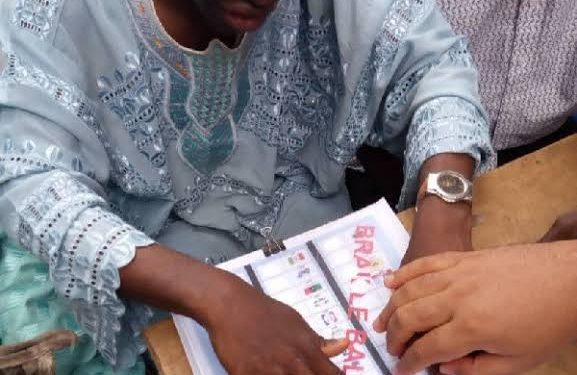The recently concluded 2024 Ondo State Governorship Election has brought attention to significant challenges faced by Persons with Disabilities (PWDs) during the electoral processes in Nigeria, despite commendable efforts to promote inclusivity.
According to a report by the Inclusive Friends Association (IFA), an Organization of Persons with Disabilities, a range of gaps in accessibility, infrastructure, and implementation of electoral policies left many PWDs unable to fully participate in the democratic exercise.
The report signed by Grace Jerry, the Executive Director of IFA and Molly Joshua, the Director of Programmes highlighted the inconsistency in deploying and utilizing assistive materials as a pressing issue in the recently concluded election.
While 98% of polling units were equipped with Forms EC40H and EC30E PWD, and 37% provided Braille Ballot Guides, the actual usage of these resources was minimal. IFA noted this was attributed to a low turnout of voters as well as insufficient awareness about these tools among voters and election officials.
According to the IFA report, polling unit accessibility also presented challenges. Although 68% of units were on flat, wheelchair-friendly surfaces, over a third still posed obstacles for voters with mobility impairments. For instance, some polling units lacked clear pathways or ramps, making them difficult to access for wheelchair users.
Priority voting policies were unevenly implemented, IFA noted. While 70% of polling units observed prioritized voting for PWDs, pregnant women, and the elderly, 30% failed to enforce these guidelines, leaving vulnerable voters to navigate long queues or unclear processes. Separate queues for PWDs were also notably absent in most locations.
The report also flagged the underutilization of Form EC40H, a key tool for capturing data on PWD participation. This form was used in only 20% of polling units, underscoring a critical gap in the documentation and representation of PWDs in the electoral process.
In light of these findings, IFA calls on the Independent National Electoral Commission (INEC) to address these gaps and ensure a more inclusive voting environment for future elections. Key recommendations include:
“INEC should ensure all polling units are equipped with ramps, clear pathways, and other essential infrastructure to accommodate voters with mobility impairments.”
“Campaigns should inform PWDs about available assistive tools and their rights to accessibility during elections, ensuring these materials are utilized effectively.”
“Observers and officials should be trained on how to deploy and support the use of electoral assistive tools, ensuring these resources are not just available but also effectively utilized.”
“INEC must enforce a consistent approach to priority voting across all polling units, with clear guidelines on separate queues for PWDs and other vulnerable groups.”
“Greater emphasis should be placed on capturing accurate data on PWD participation to guide future policy and planning,” the report added.

